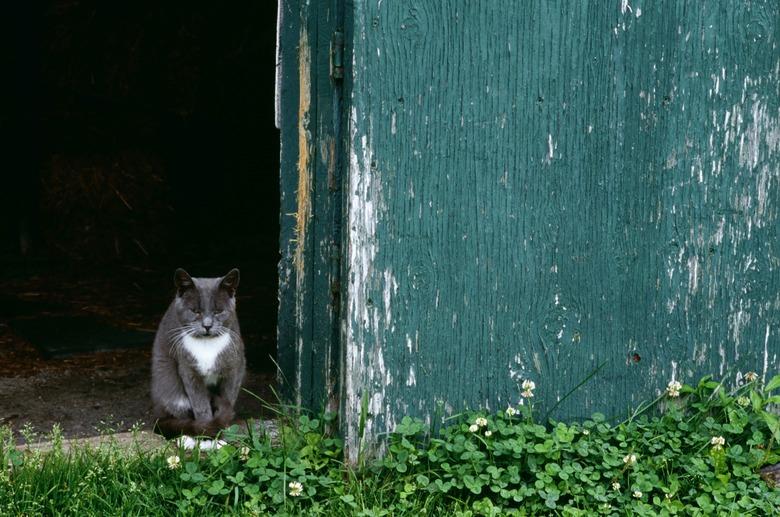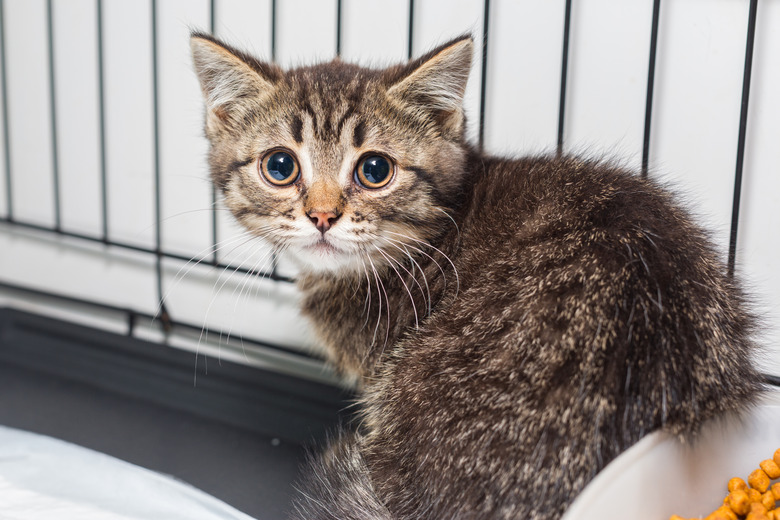Loose Stools In Cats
You understand your cat's patterns, her likes, and her dislikes. You know when she's feeling frisky and happy and when she's not on her game. Her litter box provides a wealth of information about her health: her urine output and the consistency of her poop. A cat producing loose stool could simply be suffering from an upset tummy or be more seriously ill.
Recognizing changes in stool
Recognizing changes in stool
As the tender of the litter box, you know exactly what your cat leaves behind for you to pick up after, which means you understand what's normal for her. Generally, a cat will poop at least once a day, and if all is well, she's leaving behind a dark brown, well-formed deposit for your easy scooping. Once in a while, she may leave behind something a little more challenging to clean up — that regularly tidy little log is more like a mud pie or a bit of soft-serve ice cream. Whether you call it loose stool, runny stool, or diarrhea, it all adds up to the same thing: It's out of the ordinary for your cat.
Medical causes of loose stool
Medical causes of loose stool
Loose stool can be a sign of a wide variety of medical conditions. Parasites such as giardia, coccidia, and roundworms are common culprits behind runny poop. Viral or bacterial infections, such as feline immunodeficiency virus and salmonella, are also potential causes.
Other illnesses affecting the consistency of your cat's stool include colitis, liver disease, pancreatitis, inflammatory bowel disease and cancer, and tumors in the digestive tract. If your cat's earned senior status, she also may have developed one of the common conditions among older cats, including hyperthyroidism or kidney disease, which include loose stool among their symptoms.
Other causes of loose stool
Other causes of loose stool
Sometimes it's a simple matter of food making a mess of things. Food allergies or intolerances, a change in diet, or eating spoiled or rancid food can cause loose stool. Though not part of her regular menu plan, a curious cat may ingest plants, toxins, or scavenged garbage or food to wreak havoc on her digestive system, and if she's swallowed something she shouldn't have, it can obstruct her intestines for a similar effect. If your cat's been under some extra stress — perhaps a new living situation or an addition to the family — it may show up in the litter box.
Going to the vet
Going to the vet
If your cat seems to be feeling well otherwise, a bland diet may be the best cat food for firm stool. Try it out and see if she feels better in a day or two. A bland diet consists of 1 part protein such as cooked ground turkey or boiled boneless, skinless chicken, and 2 parts starch, such as sweet potato or pumpkin.
If the diet does not help firm her stool, or she appears lethargic or dehydrated, she should see a vet. As well, if her stool contains mucus, is black and bloody, or she is vomiting, has a fever, and is uninterested in food, she requires professional assistance.
Keeping it firm
Keeping it firm
Ultimately your cat's treatment depends on what's causing her diarrhea. However, if she's a healthy girl, you can take steps on your own to keep things firm. Stay away from dairy products, including yogurt and milk, as some cats have difficulty digesting them.
Consult your veterinarian about the best cat food for firm stool. If you change cat food, take care to introduce the change gradually so as not to upset her gastrointestinal system. Mix progressively smaller amounts of her old food with her new food to transition her to her new diet. Keep tempting things, such as irritating plants, out of her grazing reach.

